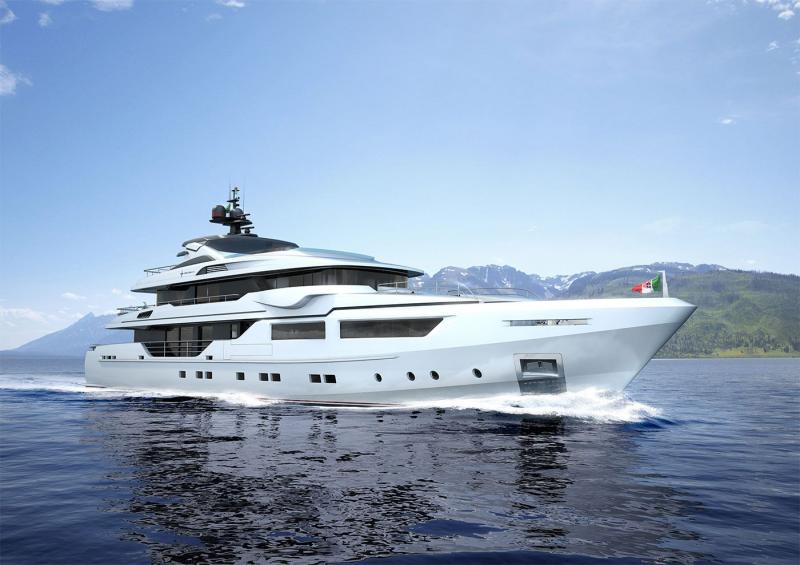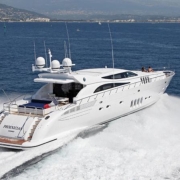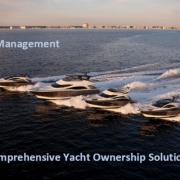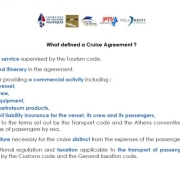Riviera Charter Broker advice for yacht Owners and Charterers
20 January 2016




Allied Yachting provides these notes to guide its customers and cover some of the questions most often raised, when using a charter broker in the course of the charter or rental of a boat:
a) as the Charter Yacht Broker (when being an authorized agent to propose a boat for charter)
b) as the Charterer’s Broker (when introducing a client booking a charter)
c) as both of the above (when being the only intermediary)
ROLE OF A CHARTER BROKER
A broker’s business is to market the Owner’s boat which will include arranging viewings, negotiating the terms of charter, handling the paperwork and defining and distributing the charter rate. A broker may also carry out title and commercial compliance checks, provide documentation in support of the vessel’s Tax status, keep an updated crew profile and evidence of building and several other dispositions compliance. For doing this work the broker charges the Owner (or owning Company) an agreed commission fee, generally 15% to 20% of the gross charter rate for MYBA members.
Good charter brokers make it their business to get to know boats and their crews intimately, and they back up their own impressions with feedback from clients. Using this knowledge, they make recommendations about which boats and crew might be most compatible with your cruising itinerary, budget and charter party.
At Allied Yachting and as yacht charter brokers, we act as agents in the rent, hire or charter time on boats. We specialize in the charter of fully crewed luxury yachts or smaller boats used by our clients for holidays/vacations. We clearly distinguish this activity from yacht brokerage, even if we carry out both at our firm. We are reputable professionals who offer a wealth of experience. We can provide expert advice about the right charter options for you.
Charter Brokers work directly with yacht owners and fleet managers, similar to how a travel agent works on your behalf. We are independent and therefore can survey the entire market to find the yachts that best meet your needs. A charter broker offers the same rate as the boat’s Owners offer.
BROKER REPRESENTATION & INSURANCE
We recommend only using a Brokerage firm that is a member of a representative organisation, like the Mediterranean Yacht Brokers Association (MYBA), since we abide to a very strict code of ethics and operate under clear rules that define the customs and practices of our profession.
At Allied Yachting, our code of ethics demands we have equal responsibilities and duties towards the Owners (or Owning Company) and the Charterers.
Yacht brokers are exposed to boat handling, custody and showings risks as well as errors or omissions in their professional activity; so, a serious professional Brokerage firm must have an adequate insurance policy covering these eventual liabilities.
STANDARD CONTRACTS
We advise charter yacht Owners (or Owning Companies) and Charterers to familiarise themselves with key aspects of these contracts:
Contractual terms of business between Owners and Broker in the form of a Listing Agreement:
- Central Agency Agreement, when having a boat for rental and charter under exclusivity
- Charter Mandate – Open Listing/Agency, when proposing a boat for charter with no exclusivity
Standard Charter Agreement between Owner (or Owning company) and Charterer:
- MYBA Charter Agreement
CHARTER BROKER RESPONSIBILITIES INCLUDE:
Yacht Selection: A vast array of luxury yachts are available for charter, all with first-class facilities. The type of yacht that you choose will depend on your idea of the perfect cruising vacation. Whether you prefer the space and comfort of a large motor yacht, a performance motor yacht packed with toys and tenders, or the romance and adventure of a sailing yacht, we can help you find your ideal luxury charter yacht.
Yacht Search: Our Luxury Yacht Charters Search on our website enables you to view the most up-to-date and comprehensive information on the motor and sailing yachts we offer for charter. We will advise you by destination, yacht type, number of guests, length of stay, price, builder, or yacht length and we’ll make it easier for you to find the yachts which best suit your preferences at the best possible rate.
Itinerary: Once you have booked your charter, the next step, and perhaps one of the most exciting, is programming your personalised cruising itinerary. The brokerage firm will generally offer suggestions, but your own preferences are of the utmost importance.
Boarding: You will need to decide how to arrive at your embarkation port. Advice on flights or any onshore accommodation arrangements can be organised by the broker or you may book independently, the choice is yours.
Preference Sheet: The brokerage firm will usually send you a questionnaire regarding your preferences throughout the charter. It should detail everything from travel reservations, food, wine and beverages, guest lists, and even décor or special requests when celebrating a birthday for example, allowing your charter yacht to be prepared to cater to exactly your requirements. Once the preference sheet is received, the charter broker will forward it to the yacht captain and take action to pre-book any required berths, order specific provisions, make special arrangements and brief the rest of the crew.
Advance Provisioning Allowance (APA) : While the charter fee usually covers the cost of the charter, equipment, crew wages and crew provisions, additional expenses are to be paid by the charterer. The APA comes then in addition to the charter fee and amounts around 30% of the charter fee. This will cover the cost of fuel, food and other provisions, such as special equipment. If you wish for an overnight berth in a marina, or to attach your yacht to a permanent mooring, this additional cost should also be included in your APA. Berth and mooring fees vary depending on the port and season. At the end of your charter vacation, you will either be refunded any money that has not been used during your rental, or need to pay an additional amount for any costs not covered by the APA.
Payments: While a first payment of 50 % of the charter fee is generally required upon signature of the Charter Agreement, the final balance of the charter fee and the APA amount will be expected one month prior to the commencement of your charter. Make sure the Brokerage firm has a dedicated account for this.











